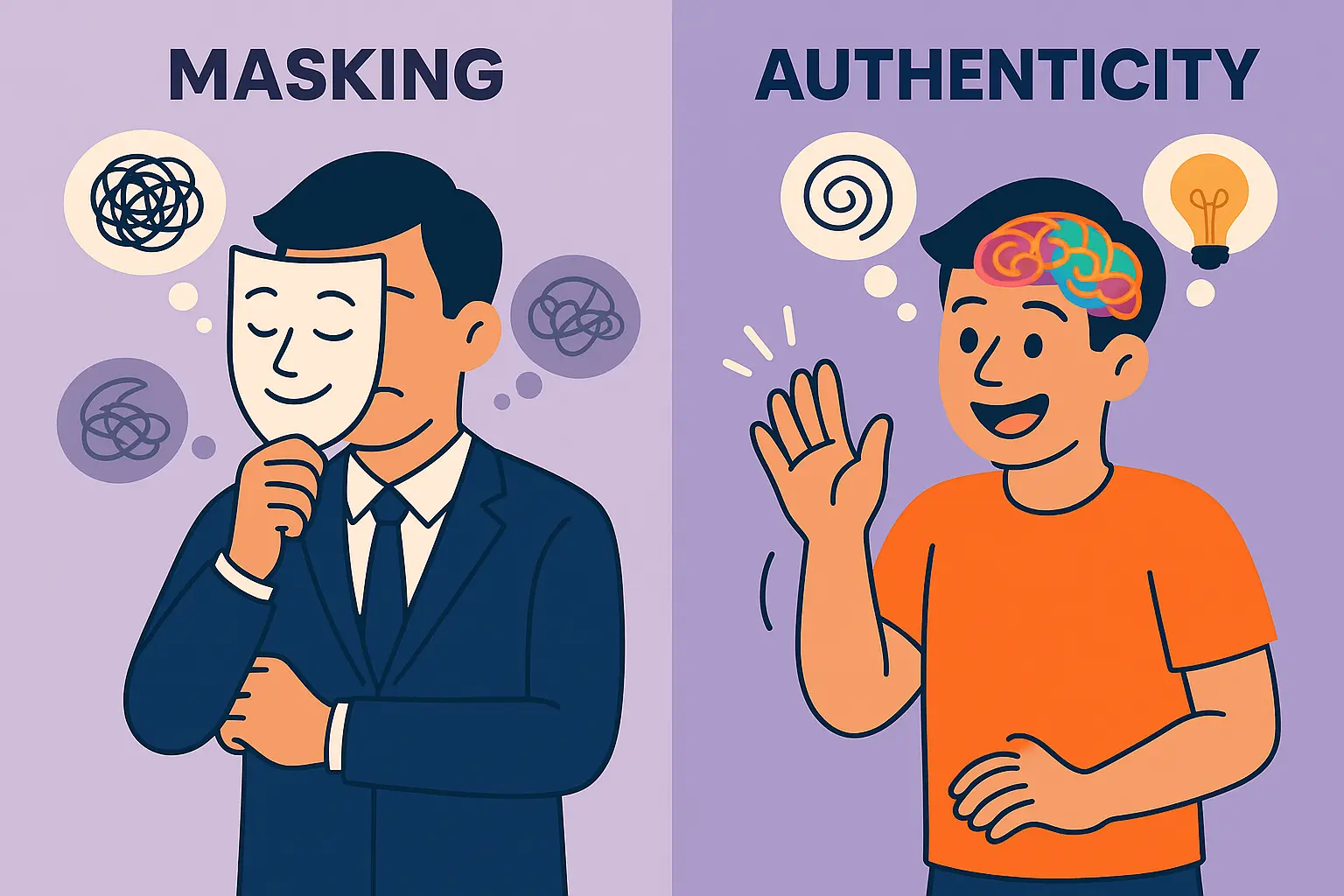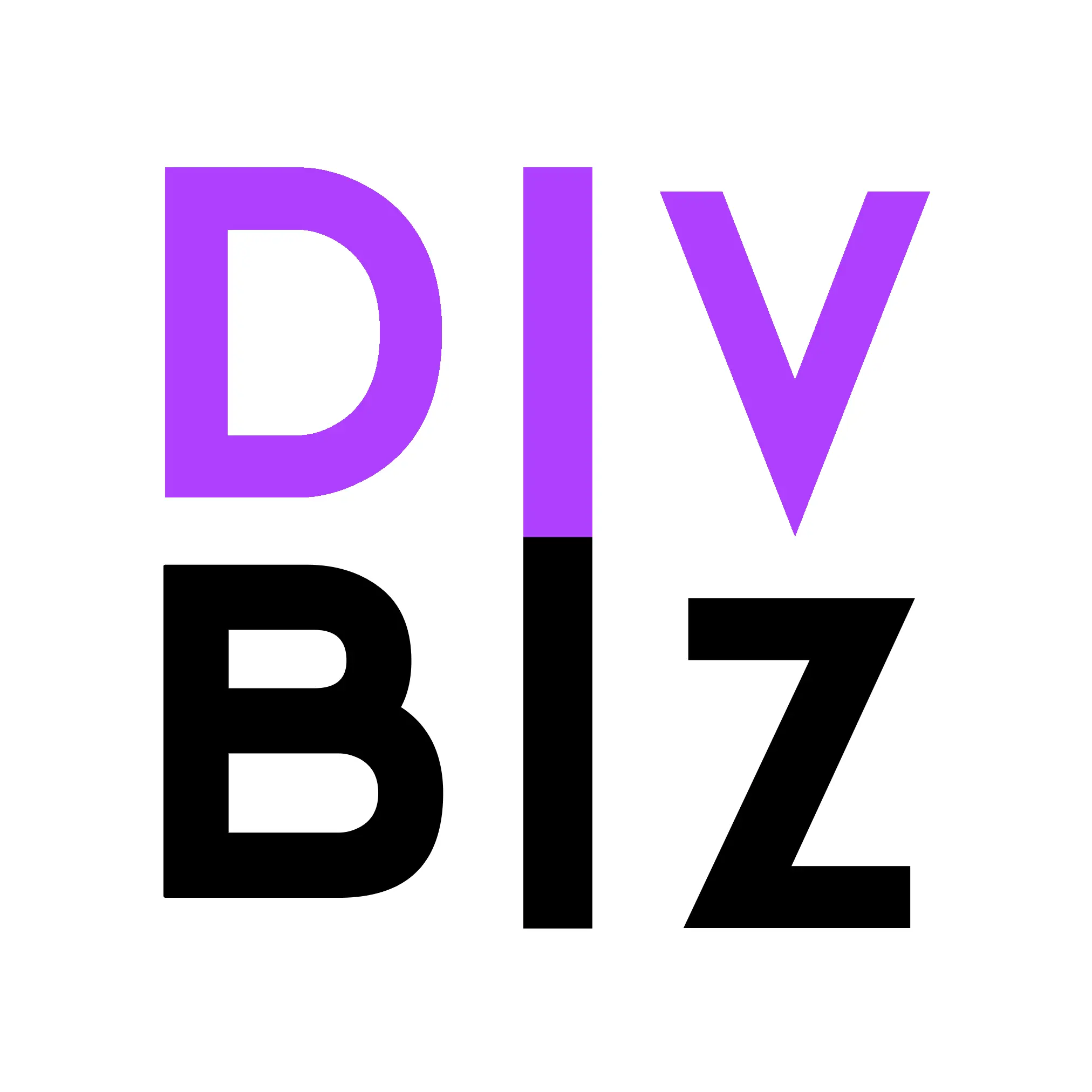But You Don’t Look Autistic: The Hidden Bias Holding Neurodivergent Entrepreneurs Back
Have you ever been told, “But you don’t look autistic”? That offhand comment, born from stereotypes about autism, can feel trivial. Yet it undermines your credibility, makes you question your own identity, and erects invisible barriers in your professional journey. When clients, partners or even friends doubt your neurodivergent experience, they also doubt your capabilities. Let’s break down why this bias persists - and how you can leverage your unique mind to blast through it.
When Appearance Overrides Reality
Stereotypes of autism - quiet, unresponsive, socially awkward - are outdated and incomplete. Many autistic entrepreneurs mask their traits to blend in, adopting social scripts and suppressing stims. But every masked interaction drains your energy and chips away at authenticity. When someone assumes you can’t be autistic because you make eye contact or speak eloquently, they’re not acknowledging the full spectrum. They’re forcing you into a narrow mold, and that mold doesn’t fit.

When Disclosure Backfires: A Workplace Tale
Meet Lukas, a dedicated engineer at a renowned software company. After years of masking, he finally disclosed his autism diagnosis to HR and his manager, expecting understanding. Instead, every subsequent mistake was met with raised eyebrows: “Of course, that’s the autistic at work,” they'd whisper. His team began distancing themselves, excluding him from key brainstorms and client calls. Minor typos or missed deadlines transformed into proof that he wasn’t fit for promotion. Lukas felt his confidence plummet and noticed his performance slipping under the weight of constant scrutiny. This invisible bias cost him crucial opportunities and nearly pushed him out of a job he loved.
“I thought honesty would bring relief. Instead, it made every misstep a spotlight on my difference.”
That’s the reality when you ‘don’t look autistic.’ Instead of support, Lukas faced skepticism and stalled career growth, simply because colleagues couldn’t reconcile his capabilities with outdated stereotypes.
The Spectrum Doesn’t Have a ‘Look’
Autism manifests differently in everyone. Some of us are hyperverbal, others non-verbal. Some crave routine, others crave novelty. Yet the myth of the “autistic look” lingers - making it easy for critics to deny your diagnosis and dismiss your needs. The truth? Autism is defined by neurology and sensory processing, not by appearance. When we cling to stereotypes, we ignore strengths like hyperfocus, pattern recognition, and unconventional problem-solving - qualities that can skyrocket your business if you know how to harness them.
How Bias Sabotages Business Relationships
When stigma seeps into your professional world, deals stall, partnerships fizzle, and recruitment opportunities vanish. Investors might question your leadership style. Clients may misinterpret your communication. Even internal teams can misread your needs, leading to micromanagement or exclusion. This isn’t about pity, it’s about real obstacles that compel you to expend extra energy just to be heard.
“I spent years proofreading every email three times, not because I’m perfectionist - but because any mistake made people question my competence.”
Building Around Your Brain, Not Against It
Stop fighting the current. Instead, align your systems to your neurodivergent wiring. Leverage visual workflows like Kanban to track progress in real time. Use body doubling or co-working sessions to spark dopamine through social accountability. Schedule high-focus tasks during your peak energy windows, monitored with simple energy logs. Embrace novelty by alternating projects in micro-sprints, keeping your brain engaged and motivated.
Actionable Steps to Challenge Bias
- Educate Your Network: Share short guides or slide decks that explain autism beyond stereotypes.
- Lead with Strengths: Highlight your hyperfocus and creative hacks in proposals and pitches.
- Normalize Disclosure: Briefly mention accommodations - like flexible hours or visual briefs, as standard protocol.
- Build an Inclusive Culture: Set up regular check-ins with your team to adapt workflows collaboratively.
- Showcase Wins: Publish case studies or testimonials that emphasize how your neurodivergent approach delivers results.
Your Next Move: Unlock Your Neurodivergent Power
If you’re done letting bias stall your success, it’s time to seize control. I’ve distilled years of battle-tested strategies into a free, no-bullshit guide that neurodivergent entrepreneurs use to:
- Exploit Your Unique Wiring: Leverage hyperfocus and creativity for unstoppable momentum.
- Scale with Clarity: Proven frameworks to double productivity and revenue - fast.
- Command Respect: Scripts and templates that neutralize stigma and position you as the expert.
Inside, you’ll get done-for-you templates, swipe files, and a step-by-step system to break through bias and drive exponential growth.
Download Your Free Neurodivergent Business Guide NowJoin our community of ND founders who’ve doubled their impact. Instant access, zero cost.
